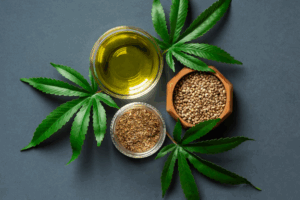Trainwreck Kratom: What It Is & Why People Love It
If you’ve explored the world of kratom, you’ve probably come across Trainwreck Kratom — a name that’s bold, a little mysterious, and often mentioned by

Kratom is a tropical evergreen tree native to Southeast Asia, particularly the regions of Thailand. This majestic plant, Kratom is deeply rooted in the cultural tapestry and wellness practices of its native communities. But is Kratom legal in Thailand? Check out the answer for this by studying the legal status and regulation of Kratom in Thailand as it may impact both local and global perspectives.
Thai Kratom’s cultural significance goes centuries back to Thai society, ingrained in everyday life and traditions. Its use fostered social bonds and enhanced well-being, evolving as an integral entity of Thailand’s rich cultural heritage. Beyond social aspects, Kratom also largely contributed to the country’s agriculture and economy.
Kratom emerged as a primary cash crop, with its cultivation and trade providing income and employment opportunities for rural communities. The plant’s economic significance extended beyond Thailand’s borders, as it became an interest for international trade.
This dual role, rooted in both culture and commerce, highlights the far-reaching impact of Kratom on Thai society and its people.
The legal landscape surrounding Kratom in Thailand is complex and ever-evolving. On December 25, 2023, Thailand’s Ministry of Public Health (MoPH) issued a statement banning the sale of Kratom leaves and Kratom-infused food products. This tightening of regulations imposed a ban on Kratom products within Thailand, reserving it for study and research purposes.
Kratom’s production and distribution are all managed within specific guidelines set by Thai authorities. Meanwhile, the exportation of Kratom from Thailand is subject to separate licensing requirements and adherence to the legal and regulatory frameworks.
The regulatory status of Kratom is complex and varied across the globe. Native countries, like Thailand, Malaysia, and Singapore, confront legal constraints for Kratom and a history of banning them. Others, such as the United States, the UK & other countries in Europe, hold legal status for most of their states.
However, the dynamic nature of the legal framework related to Thai Kratom is such that it changes quickly, mandating you to stay informed about the specific regulations to ensure compliance.
Kratom’s journey in Thailand carries a long-standing history of tradition, change, and adaptation. Once widely used for various purposes, its legality changed instantly with the Kratom Act of 1943. From there on, numerous efforts were put to restore its legality, quoting historical significance and economic impact.
As of Kratom legislation 2023, there is a prohibition on selling Kratom leaves, or food containing Kratom as a raw material or ingredient. The Kratom Plant Act governs the trade, sale of Kratom leaves to promote research & economic activity related to the plant. Import and export require licensing, and its sales are allowed with specific limitations.
Kratom’s international presence opens avenues for both import and export opportunities. This means that individuals may have the option to purchase Kratom products from online websites and stores. However, it is imperative to understand the legal and regulatory requirements for Kratom in your specific country.
Kratom products are available for sale outside of Thailand in select regions where their use is legally permitted. Many authentic online vendors or e-commerce platforms offer a wide range of Kratom products to be delivered to your doorstep.
A quick Internet search will lead you to various websites and specialty vendors. However, as a matter of caution, ensure you thoroughly research the reputation and legality of these online sources for a safe and compliant purchase.
At Club13 Herbals, we offer all the information to address your need for high-quality Kratom products. We are your trusted source for your Kratom needs, with quality and compliance being our duty.
In the conclusion to ‘Is Kratom legal in Thailand’, in 2024, Kratom remains banned in Thailand. However, its legal status has been a rollercoaster ride with restrictions going back and forth.
If you are interested in Kratom products outside Thailand, it is crucial to research and adhere to local laws and quality standards to ensure an authentic purchase.
Internationally, the legality of Kratom varies widely and requires compliance with local laws and regulations. Due diligence in researching the source and quality of Kratom products is required for making informed and wise purchasing decisions.
We at Club13 Herbals are here to cater to you with a wide variety of Kratom-infused products, from Kratom extracts & capsules to liquid extracts and hemp, to fulfill your diverse needs with careful attention to quality and compliance.
1) Is Kratom legal in Thailand currently?
As of 2024, under a regulatory framework, the Kratom tree is subject to restrictions and bans in different forms.
2) Can tourists use Kratom legally in Thailand?
Tourists visiting Thailand must adhere to local laws and regulations regarding the use of Kratom, as it requires proper authorization.
3) What is the legal status of Kratom in Thailand compared to other countries?
Kratom is strictly regulated in Thailand, while legal statuses vary in the US and Europe, where some regions allow regulated use. Travelers must comply with local Kratom laws when visiting different countries.
4) Are Kratom products available for sale outside Thailand?
Outside of Thailand, you can purchase Kratom products online from countries where it’s legal. Ensure that authenticity, legality, and quality standards are verified before buying.
References:
1. Plant growth and phytoactive alkaloid synthesis in Kratom:
doi: 10.1371/journal.pone.0259326, PMID: 35472200
2. Attitudes towards Kratom use, decriminalization and the development of a community-based Kratom control mechanism in Southern Thailand: https://doi.org/10.1016/j.drugpo.2021.103197
If you’ve explored the world of kratom, you’ve probably come across Trainwreck Kratom — a name that’s bold, a little mysterious, and often mentioned by

What Is Kratom Seltzer? Everything You Need to Know Move over, hard seltzers — a new kind of botanical brew is making waves. Kratom seltzer

Top 7 Kratom Capsules That Work (And Where to Get Them) With the growing number of kratom brands entering the market, finding quality capsules you
Why Red Maeng Da Kratom Is the #1 Choice for Daily Buyers In the world of kratom, Red Maeng Da is one of the most

Plants like Kratom and CBD have received significant attention in recent years for their potential to improve overall wellness. As these two substances continue to